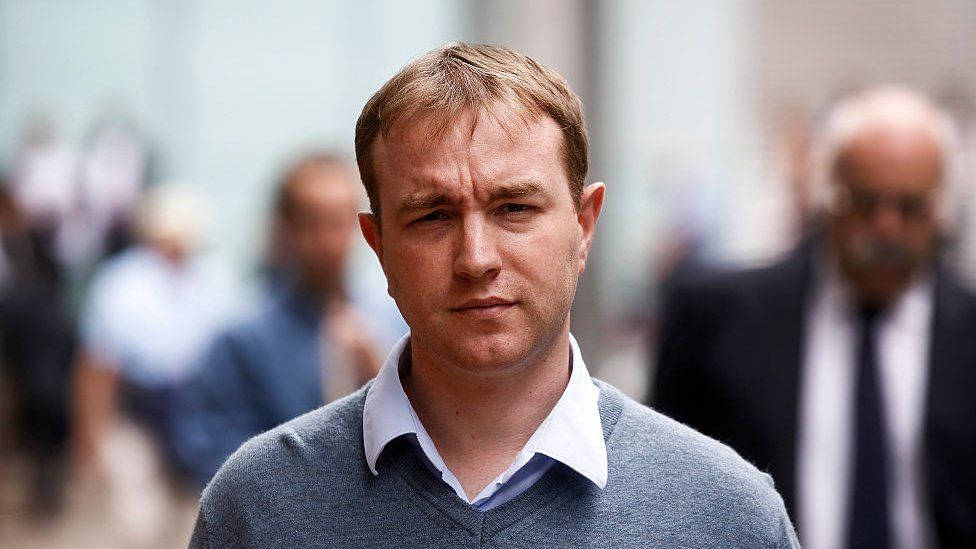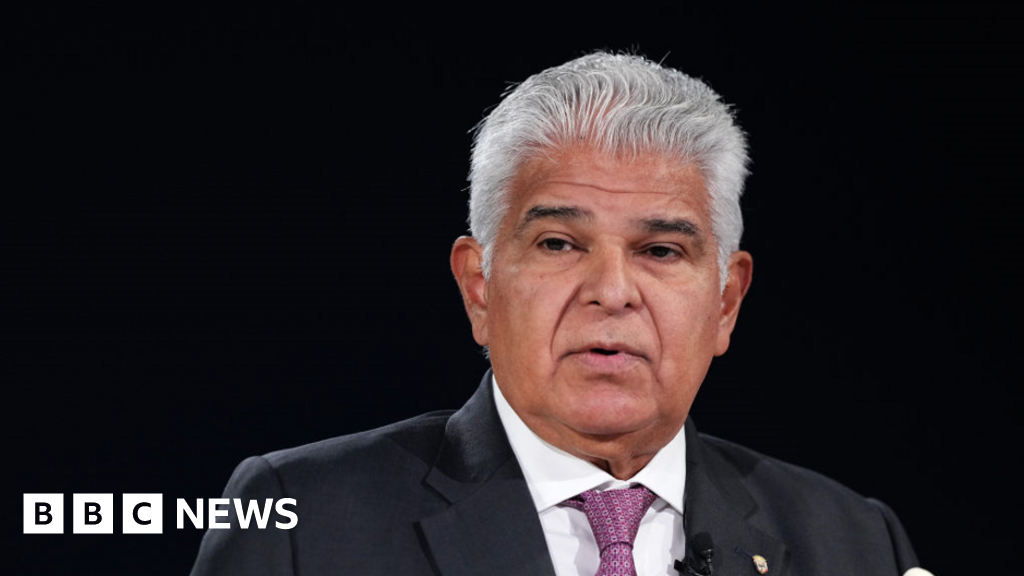ARTICLE AD BOX
 Image source, Bloomberg via Getty Images
Image source, Bloomberg via Getty Images
Tom Hayes was sentenced to 11 years in jail in 2015. He served five and a half years
Two former bankers jailed for rigging interest rates are appealing against their convictions after an eight-year battle to clear their names.
Tom Hayes and Carlo Palombo were among 37 City traders prosecuted for manipulating rate benchmarks Libor and Euribor.
If they are successful it could lead to the reversal of all such convictions.
But prosecutors point to earlier appeals against conviction that were not successful.
The former traders were found guilty of manipulating Libor and Euribor, two benchmark interest rates that track what banks pay to borrow cash from each other.
The key issue is whether it was valid for a bank's cash trader to take into account its commercial interest when estimating the cost of borrowing cash (its Libor submission), by selecting an interest rate at which they could borrow from a range on offer in the market.
Senior politicians, including former shadow chancellor John McDonnell and former Brexit Secretary David Davis, say the traders have been "scapegoated".
They draw parallels with the Post Office scandal because of evidence of a cover-up by a state-owned institution, in this case the Bank of England, followed by a whole series of what they say are miscarriages of justice.
"While the Post Office may be the widest miscarriage of justice this country has seen, this one is the deepest," Mr Davis said.
"This is, we believe, another phenomenal miscarriage of justice, where people have suffered for the simple act of following instructions," said Mr McDonnell.
The traders believe they were prosecuted to deflect public anger towards the banks following the financial crisis away from where it really belonged, much higher up the financial system.
Separately, a long-running investigation by the BBC has uncovered evidence, covered up from Parliament and juries in their trials, that the Bank of England and the central banks of France, Spain and Italy manipulated Libor and Euribor on a far greater scale than any of the jailed traders, pressuring banks to push their published interest rate estimates down to artificial levels, far below the interest rates at which cash was actually trading.
Further suppressed evidence indicates that the UK government, including 10 Downing Street, was also involved in pressuring banks to "manipulate" Libor as defined by the criminal courts - meaning seeking to obtain movements in the benchmark rate while "disregarding the proper basis for setting Libor".
When presented with this evidence by the BBC and The Times, the Bank of England has said that Libor was not regulated at the time but declined requests to comment on the evidence in detail. The government has also not commented on the detailed evidence.
Two years ago, a US appeal court threw out two traders' convictions - saying there was no evidence they had broken any laws or rules. Ten traders convicted in the US, six of them British, have now been exonerated, including those who had pleaded guilty.
That led the Criminal Cases Review Commission to refer the cases of Tom Hayes and Carlo Palombo back to the Court of Appeal in the UK - now the only country where what they did is seen as a crime.
The Serious Fraud Office has told the BBC in response to the referral of Tom Hayes's case: "All our prosecutions are based on evidence and the applicable law. We stand ready to support the Court of Appeal as it considers this referral."
The US Department of Justice has declined to comment.
Image source, AFP via Getty Images
Image caption,Carlo Palombo was sentenced to four years in jail in 2019
Tom Hayes, Carlo Palombo and 35 other traders and money brokers were prosecuted in London and New York for "rigging interest rates" in what critics say was a politicised process, prompted not by complaints of victims of fraud but by public anger towards the banks following the 2008 crisis.
The Serious Fraud Office, which brought the prosecutions in the UK, first decided in 2011 not to prosecute so-called Libor manipulation. However, it reversed its decision in July 2012 after a public outcry when Barclays was fined £290m by US and UK regulators for manipulating Libor and Euribor.
In nine trials on both sides of the Atlantic from 2015 to 2019, a total of 19 people were convicted - most of them British, but also American, French, German, Japanese and Italian traders.
No victims of the alleged "fraud" by the jailed traders have ever been produced. Nor have prosecutors ever demonstrated that a fraudulent transaction took place. Instead of being prosecuted under the Fraud Act 2006, they were prosecuted under the common law offence of "conspiracy to defraud".
Tom Hayes was sentenced to 11 years in jail in 2015. He served five and a half years and was released in January 2021, still protesting his innocence.
Carlo Palombo was sentenced to four years in jail in 2019. He was released in 2021.

 10 months ago
89
10 months ago
89








 English (US) ·
English (US) ·